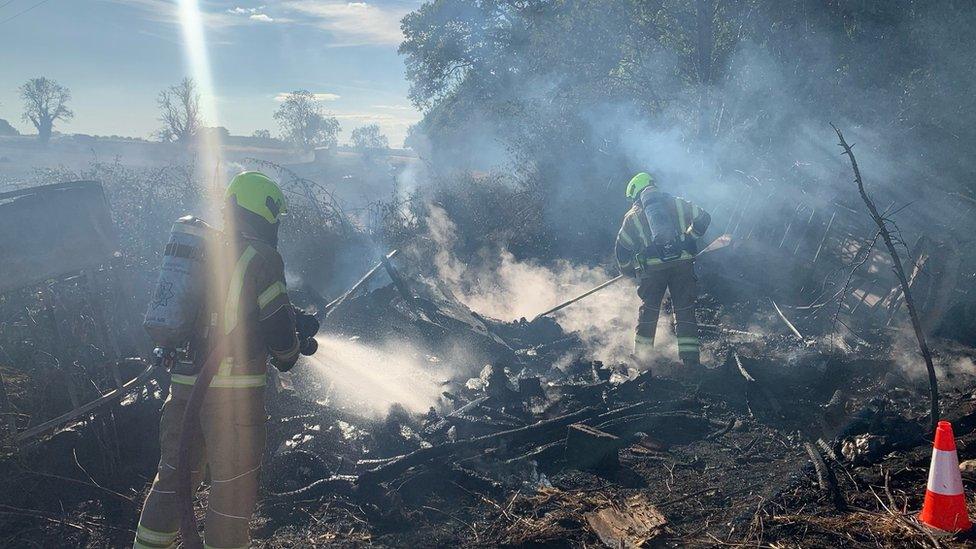'Significant' wildfires in West of England but fire services 'coping'
- Published
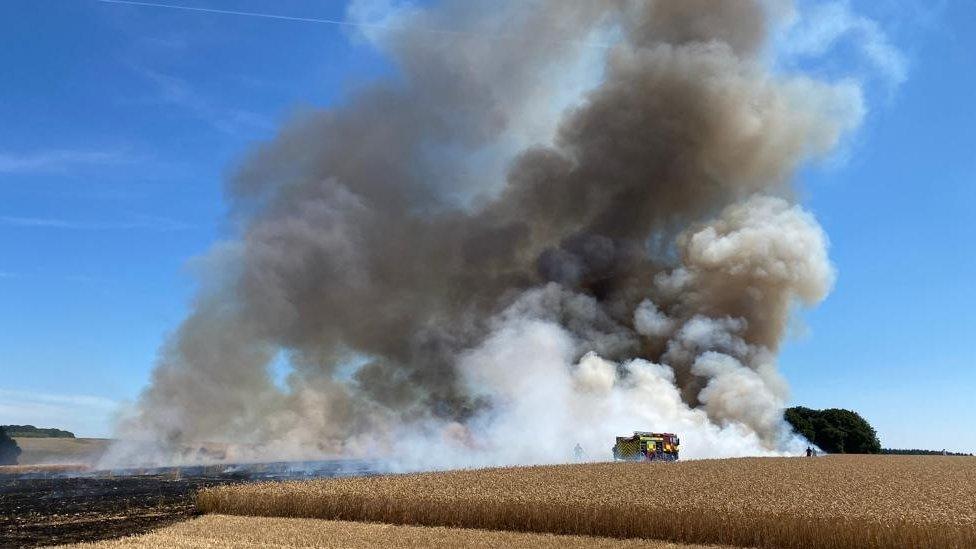
Continued hot weather means the ground remains very dry and even the smallest spark can lead to devastating fires
Fire services in the West are having to deal with a "significant number" of calls outs to wildfires but say they are currently coping with demand.
Dry conditions have prompted a spike in fires and demands on the services.
Stuart Gillion, from Dorset and Wiltshire Fire Service, added there were "open space protection orders" meaning barbeques and camp fires were banned.
He said the service was now calling on councils to enforce the ban.
Mr Gillion, the services group manager, said: "There are open space protection orders around Dorset and Wiltshire where campfires and barbeques are prohibited by law now."
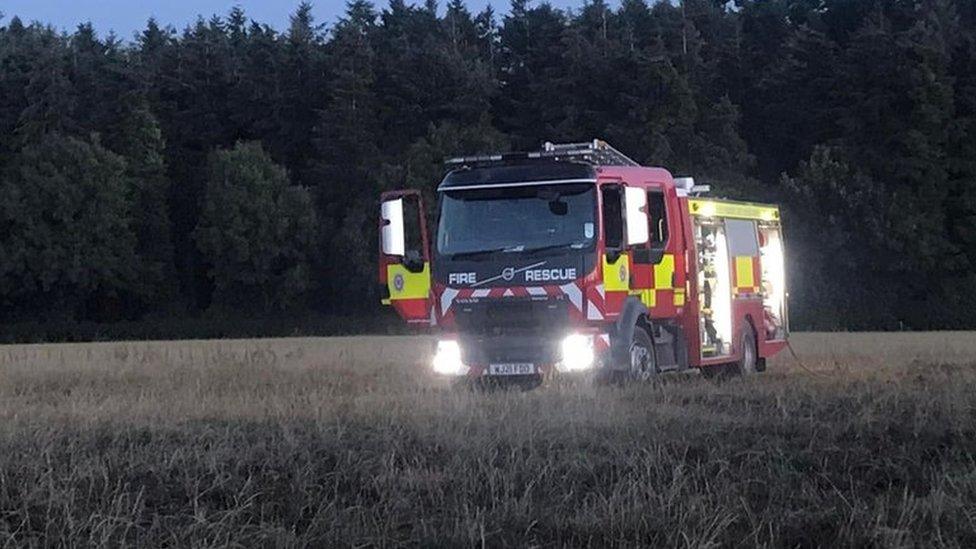
Farmers have been dealing with wildfires costing them acres of grain
An Avon Fire and Rescue spokesperson said the service supported a decision taken by organisers of the Bristol International Balloon Fiesta to ban barbecue's and fireworks on site this weekend.
They said with the ground being so dry even the "smallest spark" can lead to "devastating fires.
"[With] most wildfires started by human behaviour, such as a barbecue or even a discarded cigarette, we want to work with everyone this summer to reduce fires in our communities," they added.
Avon Fire and Rescue Service attended 242 fires in May, 266 in June and 388 in July with nearly half of July fires (189) outdoors and 95 involving grass, woodland, or crops.
Mr Gillion said Dorset and Wiltshire experienced a "significant rise in incident numbers compared to the same period last year, up 182% on the number of fires in the open".
He said although they are "stretched at times when we have simultaneous or back to back incidents", they are managing to "resource appropriately".
"It has been very much a team effort," he added.
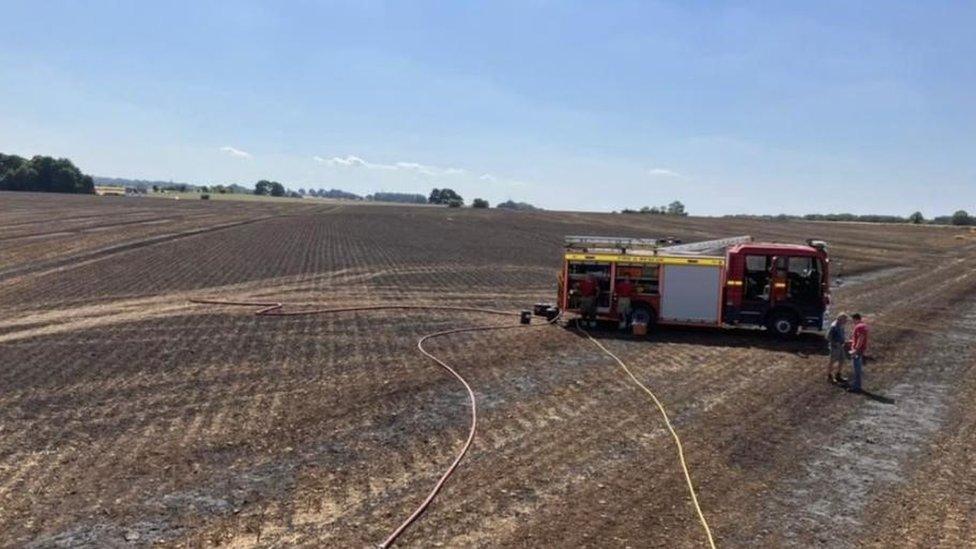
A fire engine on fields destroyed by fire, as has been seen in wildfires across the west
A spokesperson for Gloucestershire Fire service said it has been dealing with a "significant number of calls" involving fires in the open, some of which cover areas up to 110,000 sq meters.
They said fire incidents including grassland, vegetation, pasture, grazing, straw stubble, and similar, went from six recorded incidents in 2021 to 53 fires in 2022 during the same dates, 1-10 August.
However, they said they are managing to respond to calls with their own staff and have "really good resilience arrangements in place with neighbouring [fire services] and also National Resilience".
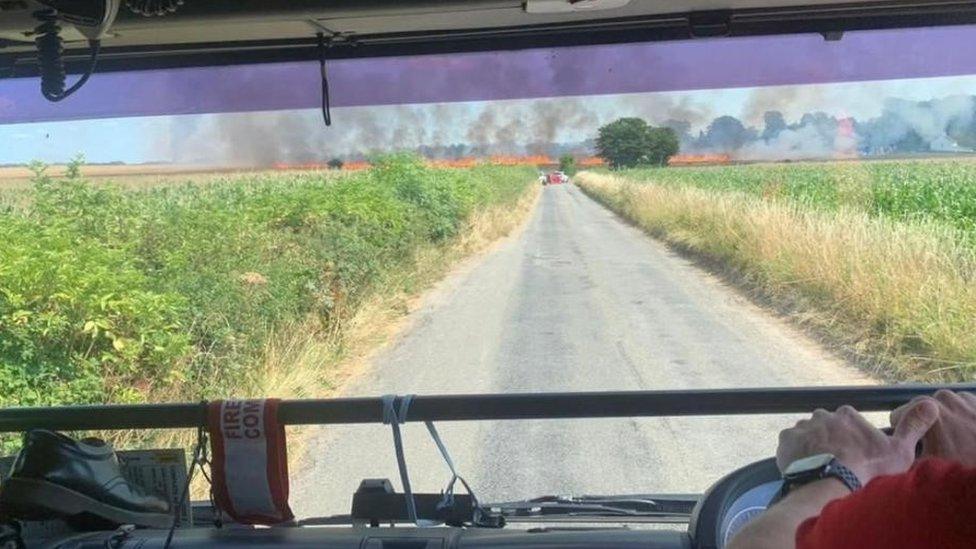
Avon Fire and Rescue said they want to work with everyone "to reduce fires in our communities"
A Devon and Somerset spokesperson said as officers deal with the increase in incidents involving fires in fields and moorland, it had been important to factor in the effect "the extreme heat and conditions" have on staff and their welfare.
She said having in-built flexibility and being able to move resources as required, meant the force could respond "as usual" to emergencies.
The spokesperson said is was important for people to be mindful of the damage barbeques and cigarettes can cause but also to clear up their litter.
"Leaving litter on grass, in particular glass bottles, is not only antisocial but also a fire risk as the glass magnifies the sun's rays and can cause fires."
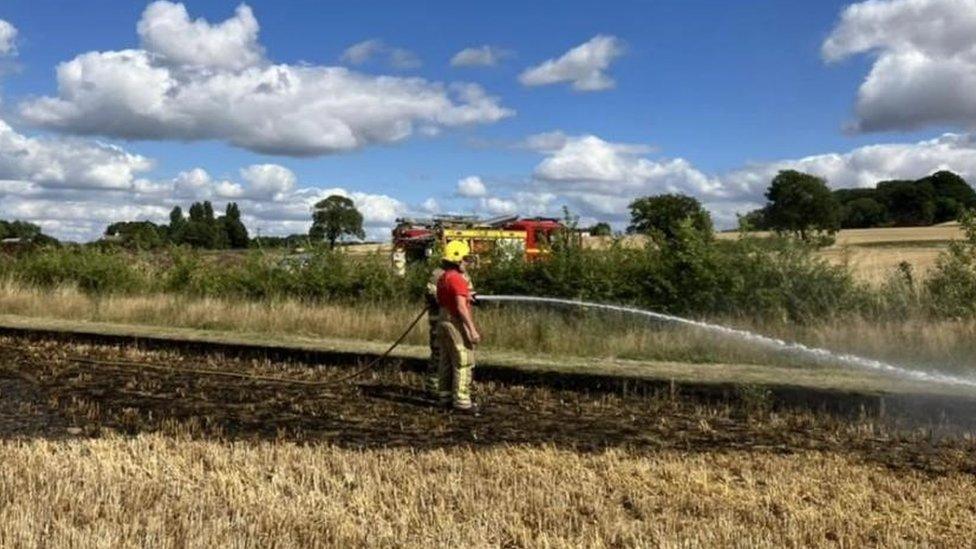
Hot weather impacted officers as the incidents are "more arduous" with fire spreading quickly, a spokesperson said
BBC West weather forecaster Ian Fergusson said the Met Office has developed a modelling system that provides guidance on potential fire severity, "in other words just how bad a fire may become, if and where they occur".
He said a similar tool used in Canada "combines a variety of forecast parameters such as wind, rainfall, temperature and so-forth to gauge the likely severity of wildfires.
"[The] latest output from the Met Office's Fire Severity Index (FSI) indicates parts of southern England, including in the West Country, reaching exceptional levels of fire severity by later this week," he added.
Mr Fergusson said there is "no risk of lightning [which is] the key source of natural wildfire ignition, until perhaps later Sunday and then at times on into next week".
The FSI is updated each night and can be seen here, external.

Follow BBC West on Facebook, external, Twitter, external and Instagram, external. Send your story ideas to: bristol@bbc.co.uk , external
- Published8 August 2022
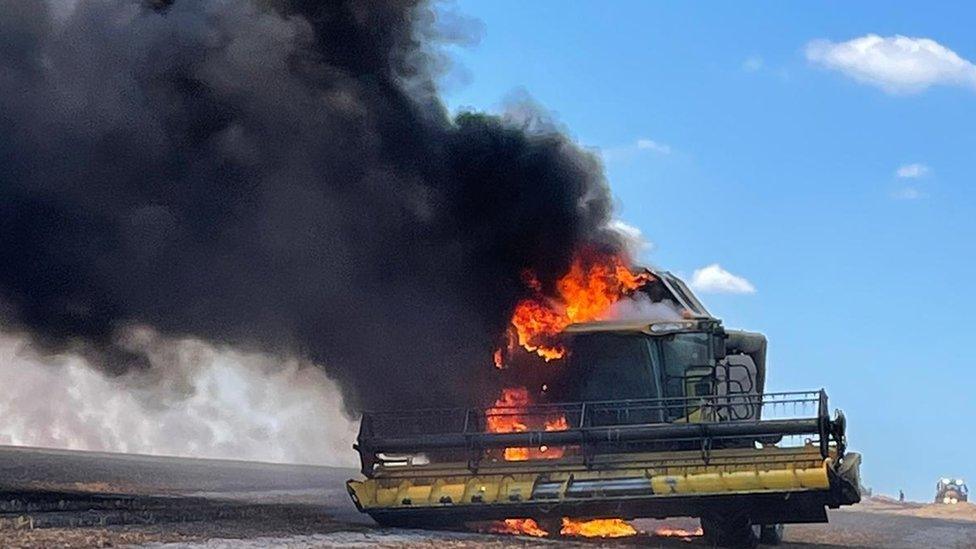
- Published8 August 2022
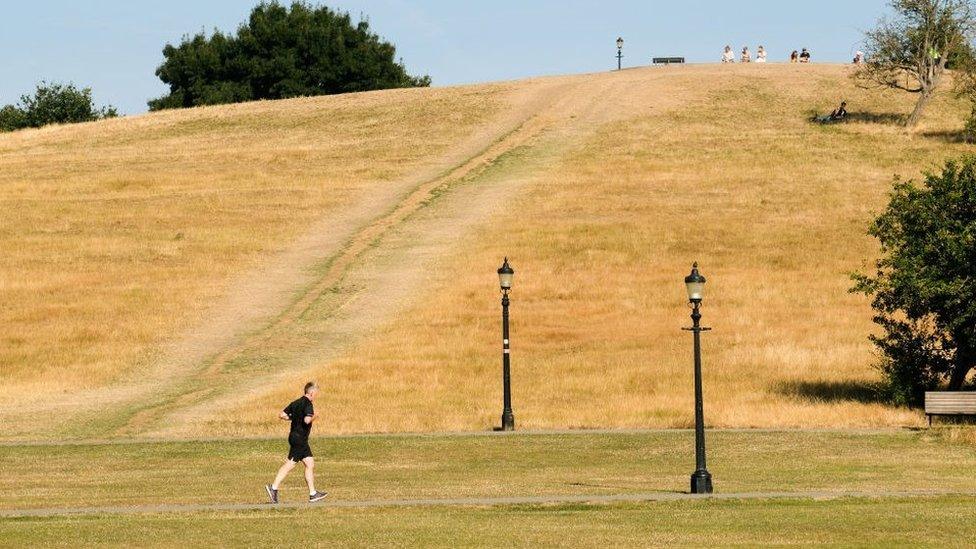
- Published8 August 2022
